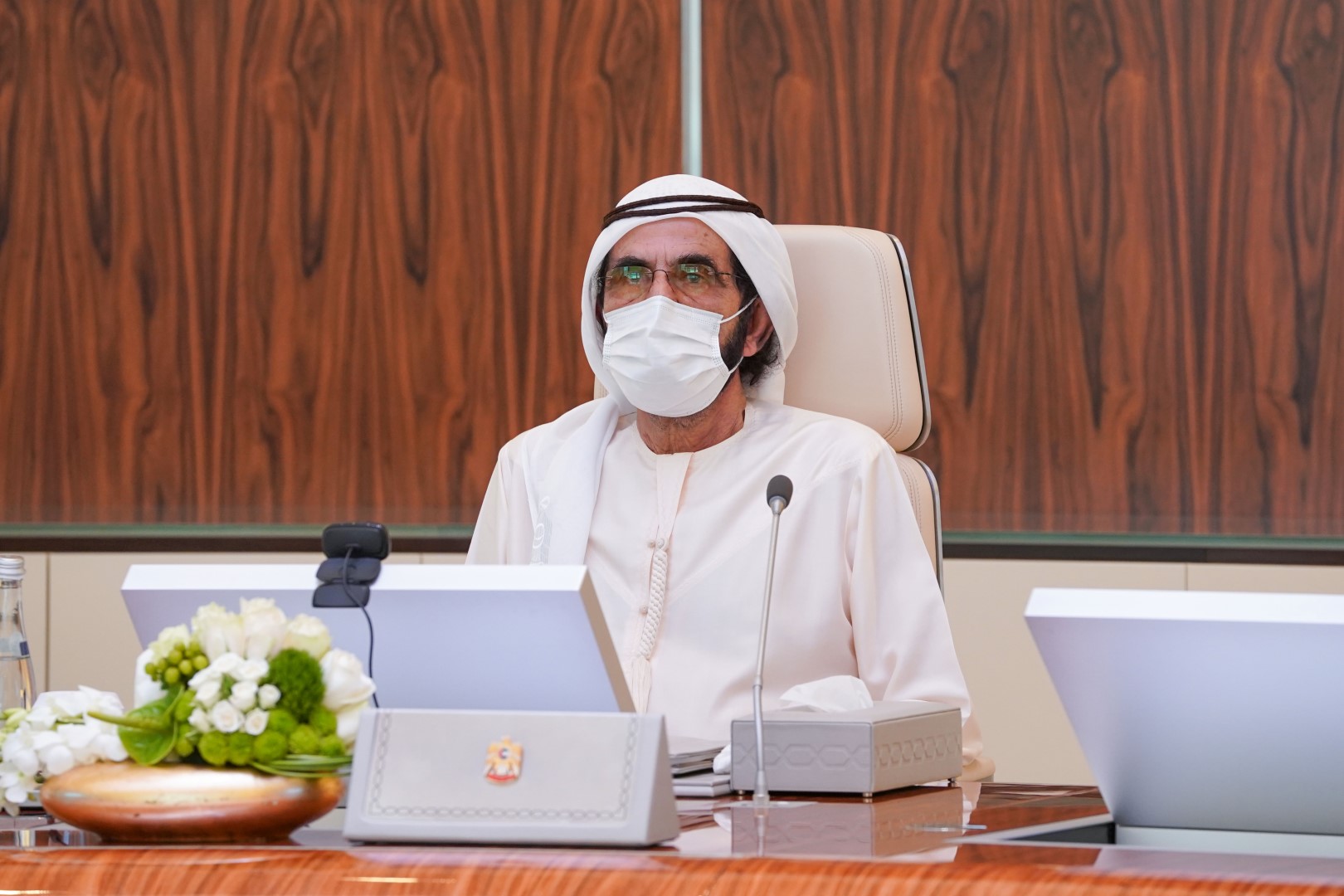His Highness Sheikh Mohammed bin Rashid Al Maktoum, Vice President and Prime Minister of the UAE and Ruler of Dubai, has affirmed that enhancing competitiveness ranking in all sectors plays a key role in the development strategies adopted by the country to further advance government performance and enhance the quality of life for citizens and residents.
The remarks by His Highness Sheikh Mohammed bin Rashid came during the UAE Cabinet meeting held today at Qasr Al Watan in Abu Dhabi, in presence of Lt. General H.H. Sheikh Saif bin Zayed Al Nahyan, Deputy Prime Minister and Minister of the Interior, and H.H. Sheikh Mansour bin Zayed Al Nahyan, Deputy Prime Minister and Minister of Presidential Affairs. The meeting reviewed a detailed report on the performance of the UAE in the most important global competitiveness indicators.
During the meeting, Sheikh Mohammed bin Rashid stressed that competitiveness is not a goal in itself, but rather a means to further enhance the performance and competence of all sectors, thus ensuring a high quality of life for citizens and residents.
RELATED STORY: NCEMA: UAE ranks 1st globally in the number of COVID-19 tests per capita
Sheikh Mohammed said that attaining sustainable competitiveness within government work allows for the development of more flexible plans and policies that rise to the changes at the current stage.
The report presented by the Federal Competitiveness and Statistics Authority reveals that the UAE ranked first globally in 121 indicators, first in the Arab world in 479 indices, and among the top ten countries in 314 indicators.
Following the recent ministerial formation, the Cabinet has approved 4 new organisational structures for Ministry of Economy, Ministry of Culture and Youth, Ministry of Industry and Advanced Technology, and Ministry of Energy and Infrastructure.
The Cabinet has also approved a Federal Decree-Law on private education, with the aim of organising the educational process in private schools, raising the quality of education, and stimulating competition between private schools. The law also regulates the licencing of private schools, approval of educational curricula, and the safety of students.
The Cabinet also approved Federal Decree-Laws on the amendment of the penal code (Criminal Law), the Commercial Transactions Law, the Securities and Commodities Law, the Insurance Law, and the organisation of the telecommunications sector law.
READ ON: Dubai thrusts forward in global rankings of Foreign Direct Investments on H1 2020 at AED 12B
Furthermore, the Cabinet approved the executive regulations of the Federal Law concerning the practice of the human medicine profession, which comprises detailed rules, provisions and procedures aimed at facilitating the implementation of the law.
At the international level, the Cabinet approved agreements between the government of the UAE and a number of friendly countries to prevent double taxation, including the Republic of Chile, the Arab Republic of Egypt and the Republic of Zambia, in addition to an agreement with the Republic of Zambia on the encouragement and mutual protection of investments.
During the meeting, the Cabinet reviewed a number of government reports in various sectors, including the report of the financial statements of the Emirates Development Bank and the report of the external auditor for the fiscal year 2019, in addition to a report on the performance of the insurance sector in the country.




